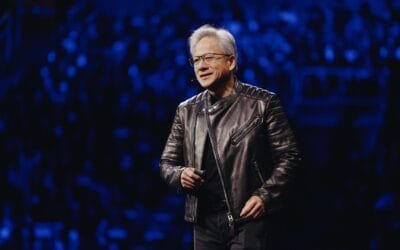This is an intellectual autobiography of Mises, written near the half-way point of his productive years (1940). It was completed in the three months following Mises’ arrival in America, at age 59, as an exile from war-torn Europe.
Mises offers little about his personal life, but describes the evolution of his thinking against a background of opinion squarely opposed to his own. It is the account of a true scholar, one of independence and integrity, who valiantly fought against the intellectual mainstream without ever diluting his radical views to accommodate the orthodoxies of the time. “In science, compromises are treason to truth,” he writes.
Mises began reading popular history at age seven. At the University of Vienna he turned from law to economics due to the influence of Carl Menger, the founder of what came to be known as the Austrian School of Economics. Mises says that “it was the reading of Menger’s Principles of Economics that made an economist out of me.” Mises describes himself as a “thorough statist” and a positivist when he entered university life. However, “when I finally engaged in an intensive study of the important works of Marx, Engels and Lassalle, I was provoked to contradict them on every page. It seemed incomprehensible to me that this garbled Hegelianism could exert such an enormous influence.” Mises describes his own great contributions to economics without false modesty, including The Theory of Money and Credit (1912), Socialism (1921) and Human Action (1940).
Mises also credits himself with offering a better epistemology for economics—— a method relying on logic and theoretical reasoning. He was opposed to the concrete-bound, statistical empiricism that ruled economics. He rejected the belief that the principles of logic were “arbitrarily chosen conventions.” He writes that “the basic assumptions of logic have been called ‘the rules of the game.’ But we must then add that this game is our life, that we are born in this game and that we must play it as long as we live. And for us humans there is no second game that could observe other rules.” As a result of his views, Mises says, a “university professorship was closed to me, inasmuch as the universities were searching for interventionists and socialists.” But he began conducting an economic seminar at night, attended by a dozen or so young economists and students (many of whom went on to become internationally renowned economists, including Nobel-prize winner Friedrich Hayek). After emigrating to America in 1940, he faced the same obstacle in obtaining a teaching position.
Mises’ autobiography is sometimes sad, sometimes bitter in tone. While he was developing his ideas, he was simultaneously witnessing the cultural deterioration of Europe and Austria before and after World War I. He was one of the few giants able to understand the nature of the disastrous anti-capitalist trends and to offer a fundamental alternative—yet his ideas were ignored by society. At one low point, 9 he says, “I set out to be a reformer, but only became the historian of decline.
But Mises’ bitterness never borders on resentment. He recalls the intense pessimism suffered by Menger and notes how it paralyzed his productivity and spirit in his later years. Mises avoided full despair by deliberately focusing, not on the motives and character of his opponents, but on the means of refuting their arguments. He believed that such an approach would preserve his enthusiasm for ideological battle.
This book captures the spirit of a great mind and of a man of great principle— who, ultimately, by his intransigent commitment to his ideas, gained wide intellectual influence. That spirit is best summarized in a postscript by Hans Sennholz, one of Mises’ students: “Always active in thought, always eager to ponder new ideas, his mind was ever young. Satisfied, yet ever dissatisfied; settled, yet ever unsettled; seeing clearly, yet ever searching for new horizons.” This is a moving and inspiring. autobiography of perhaps the greatest economist of all time.
This review is made available by the Ayn Rand Bookstore (formerly Second Renaissance Books)










